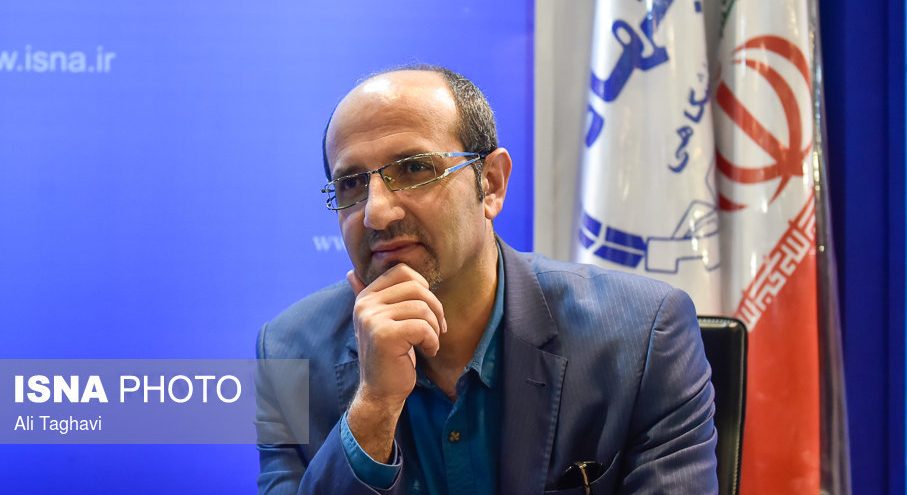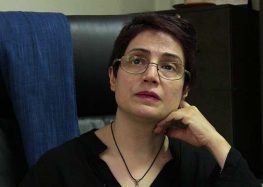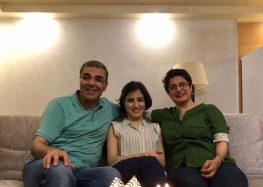Rights Attorney Summoned to Court in Iran After Signing Letter Criticizing Judiciary’s Restriction of Right to Counsel

Attorney Hossein Ahmadiniaz, the defense counsel in several cases involving human and political rights in Iran, has been summoned by Branch 4 of the Revolutionary Court in Sanandaj, the capital of Kurdistan Province.
On June 9, 2018, Ahmadiniaz was one of several Iranian lawyers who signed an open letter criticizing Judiciary Chief Sadegh Larijani for restricting counsel for detainees held in politically sensitive cases in Iran to just 20 state-approved lawyers.
“They have divided the legal profession into us and them; those who are approved by the state and those who are not,” Ahmadiniaz told the Center for Human Rights in Iran (CHRI) in March 2018.
“This is against Articles 3, 19 and 34 of the Constitution,” he added. “Article 19 clearly emphasizes equality among all citizens and Article 34 calls for fair and just adjudications. Article 3 calls for ending discrimination and yet what is taking place is discrimination on a large scale.”
One of Ahmadiniaz’s clients, Kurdish political activist Ramin Hossein Panahi, is on death row in Sanandaj’s Central Prison despite serious concerns about the way his case was handled by the authorities.
Ahmadiniaz told CHRI on July 6 that the summons had ordered him to appear in court within 10 days—by July 16—but it did not state a reason.
“I was summoned in writing once before and answered some questions and had hoped that any misunderstanding had been cleared,” he said. “They asked me about my interviews with the media regarding Ramin Hossein Panahi and the Shinabad girls.”
“Now I’m very worried,” Ahmadiniaz told CHRI. “I have not done anything wrong. I have only defended my clients based on my professional duty.”
He added: “I have honorably defended my clients within the law. I have always respected my country’s laws. I am not a politician. I am a lawyer. I have and I will always defend my clients according to my professional responsibilities. I have not violated the law or the lawyers’ code of conduct and never will.”
Ahmadiniaz also represents the families of several girls who were victims of a fire at their state elementary school in the village of Shinabad, West Azerbaijan Province, in December 2012. The families argue that they have not been fully compensated for their losses by the local authorities in charge of maintaining students’ safety.
Iran has a documented history of harassing and jailing lawyers who have taken on politically sensitive cases.
Prominent human rights attorney Nasrin Sotoudeh has been detained since June 13, 2018, and is facing national security charges for representing women who have been charged for peacefully protesting Iran’s compulsory hijab law.
In 2010, Sotoudeh was sentenced to 11 years in prison for the charges of “acting against national security,” “collusion and propaganda against the regime,” and “membership in the Defenders of Human Rights Center.” An appeals court later reduced her sentence to six years in prison and she was granted early release in September 2013 after serving three years.
Human rights lawyer Mohammad Najafi is also facing years behind bars in Iran for publicly arguing that local police tried to conceal the cause of a detainee’s death.
Well-known human rights lawyer Abdolfattah Soltani is currently serving a 13-year sentence in Evin Prison for the charges of “being awarded the [2009] Nuremberg International Human Rights Award,” “interviewing with media about his clients’ cases,” and “co-founding the Defenders of Human Rights Center.”
Human rights attorney Hadi Esmailzadeh was imprisoned twice before he died from a heart attack in February 2016 after being sentenced to four years in prison in July 2014 by a Revolutionary Court for the charges of “propaganda against the state” and “membership in the Center for the Defenders of Human Rights.”






